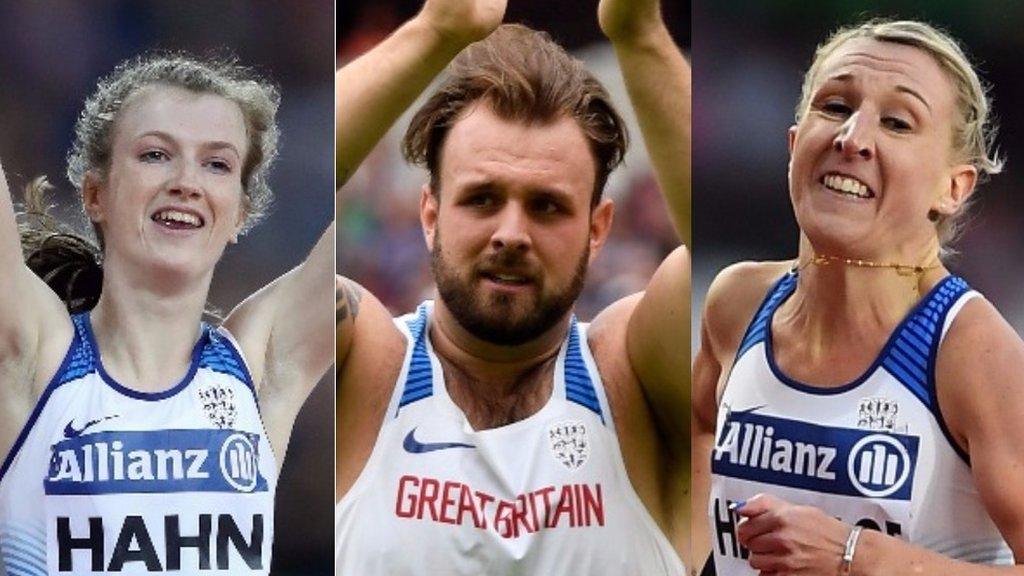Sophie Hahn: Classification claims heartbreaking - Paralympic athlete
- Published
I was very angry and upset - Hahn
British Paralympic athlete Sophie Hahn says having her impairment classification questioned by the father of a rival was "heartbreaking".
Michael Breen, father of sprinter and long jumper Olivia Breen, cast doubt on her classification at a Parliamentary select committee in October.
"I was very angry and upset," Hahn told BBC Sport. "I work unbelievably hard on the track."
Hahn, who has cerebral palsy, won T38 100m Paralympic gold in Rio.
She also has four individual world titles.
Speaking to a Culture, Media and Sport select committee, Michael Breen named Hahn as an athlete who he had been told was benefiting from being wrongly classified, and therefore running against athletes with a more severe disability than herself.
But 21-year-old Hahn, who took up the sport after watching the London Paralympics, has rejected the claims.
"I put in hours of training on the track and in the gym," she told BBC Sport's Kate Grey. "I was very surprised. I never imagined seeing my face all over the internet and newspapers and on television."
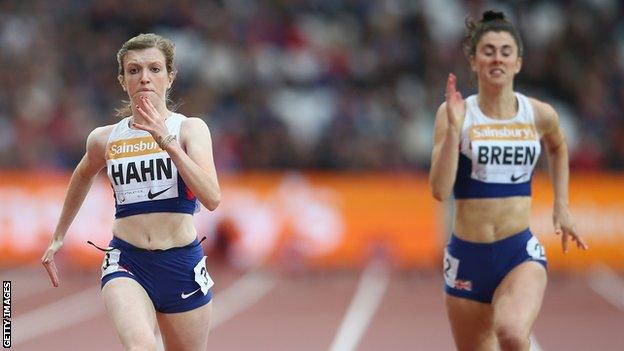
England's Sophie Hahn and Olivia Breen of Wales have been rivals in the T38 category for the past five years
Hahn's condition
Hahn, a twin, had a complicated birth and was diagnosed with brain damage which affected her growth and development as a child.
She could not stand until she was two and did not walk or talk until after her third birthday, having numerous scans and tests over her young life.
Even now she struggles with her co-ordination and balance, and says that she sometimes cannot tie her shoelaces. In addition, the right side of her body is weaker than the left and she has tight hamstrings and a tight back and fatigues easily.
"All Sophie can do is run in a straight line," says her father, David. "She can't run the 400m because her muscles won't allow her to. She can't throw or do the long jump like others in her class can."
Last year, Hahn said she had been investigated by the International Paralympic Committee (IPC) as a result of Breen's "constant questioning".
However, the IPC has previously criticised Breen's testimonies, referring to him as "a disgruntled father".
But a review of its rules mean many athletes will face being reclassified again this year, including Hahn, who says she has "no problem" with the IPC's decision to make her go through classification again.
It comes in a year where she will make her Commonwealth Games debut for England in Australia in April before the Para Athletics European Championships in Berlin in August.
'Grimly determined'
Watching their daughter's abilities and achievements being called into question has been a difficult experience for David and his wife Jane but they say they are proud of how Sophie has dealt with it all.
"I'm disappointed and a little bit angry but sad for Sophie because it really affected her," said David. "She is a vulnerable girl and she didn't need or want any of this.
"As a parent you are protective - you don't want anyone to start attacking your daughter - and I'm very disappointed that someone felt that was a good thing to do.
"The worst thing was she was named where nobody else was, and that was the thing that annoys me most."
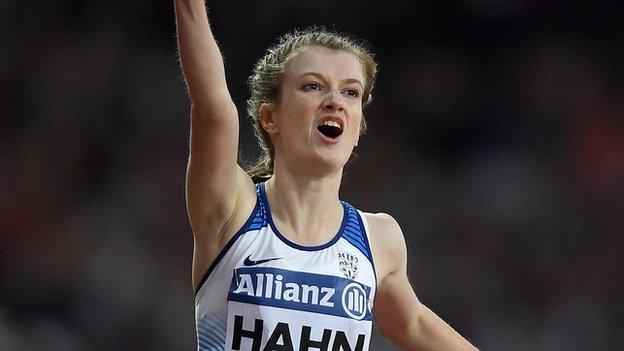
Hahn won double gold at London 2017 in front of a big home crowd
Jane also admits that it was tough to watch the impact the affair has had on her daughter.
"Sophie's way of dealing with it was to train harder but it was very sad to watch her going through it," she says.
"She always said she wants to be the best that she can be on and off the track and be a role model for others.
"She feels that this has taken all of that away. She doesn't want to be remembers for that. She wants to be remembered for being good on the track and being good and polite off it.
"But she has dealt with it better than we did. She is grimly determined."
Analysis
BBC disability sport reporter Elizabeth Hudson
Hahn burst onto the scene at the 2013 IPC World Championships in Lyon as a 16-year-old, setting a new world record to win the T38 100m.
In some ways she seemed mature, but in others she seemed overawed by the whole experience, especially the media attention.
She was so new to the sport that she hadn't even learned how to use starting blocks.
Just a year earlier she had been watching London 2012 on television, now she was on the same team as the likes of Paralympic champions Richard Whitehead and Hannah Cockroft.
Since then the Pocket Rocket, as she is affectionately known, has grown in confidence and added to her medal haul.
On the start line, she looks focused and fierce and she is a determined competitor, but off the track, she is softly-spoken and unfailingly polite.
Watch more on this story in Friday's Victoria Derbyshire programme at 09:00 GMT on BBC Two, or catch up on iPlayer.
- Published7 December 2017
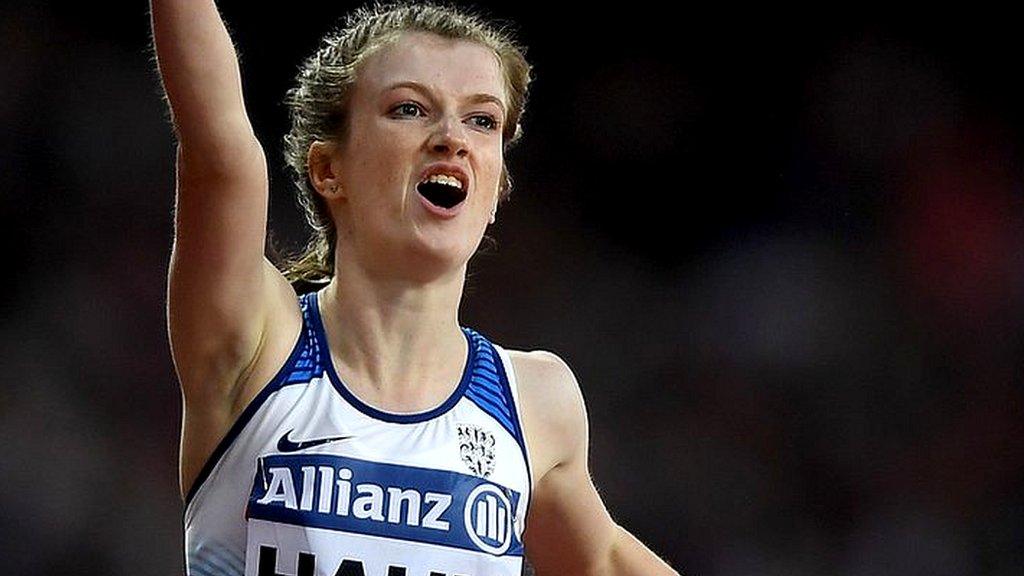
- Published31 October 2017
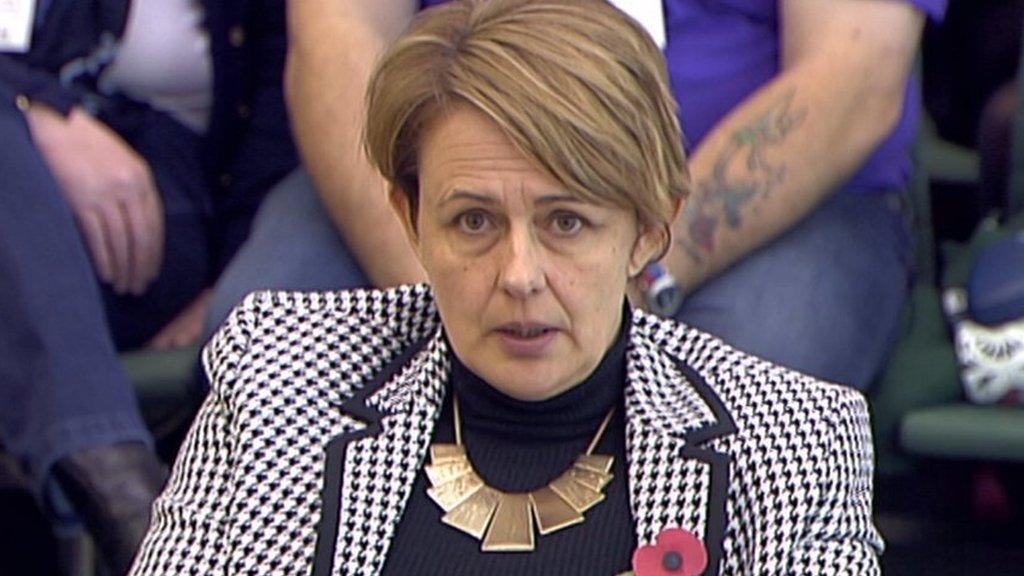
- Published22 July 2017
